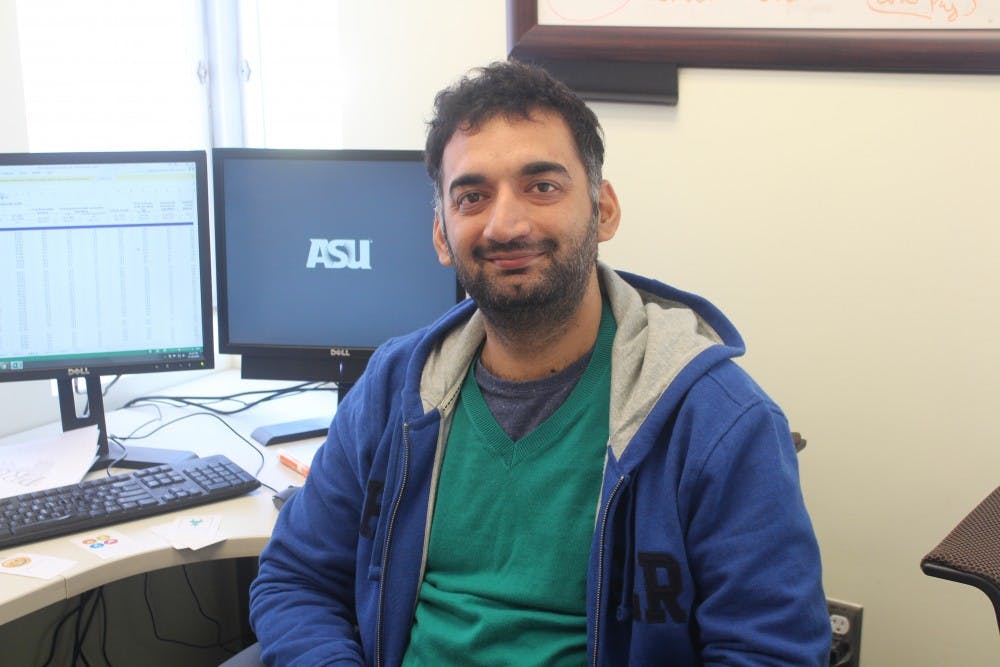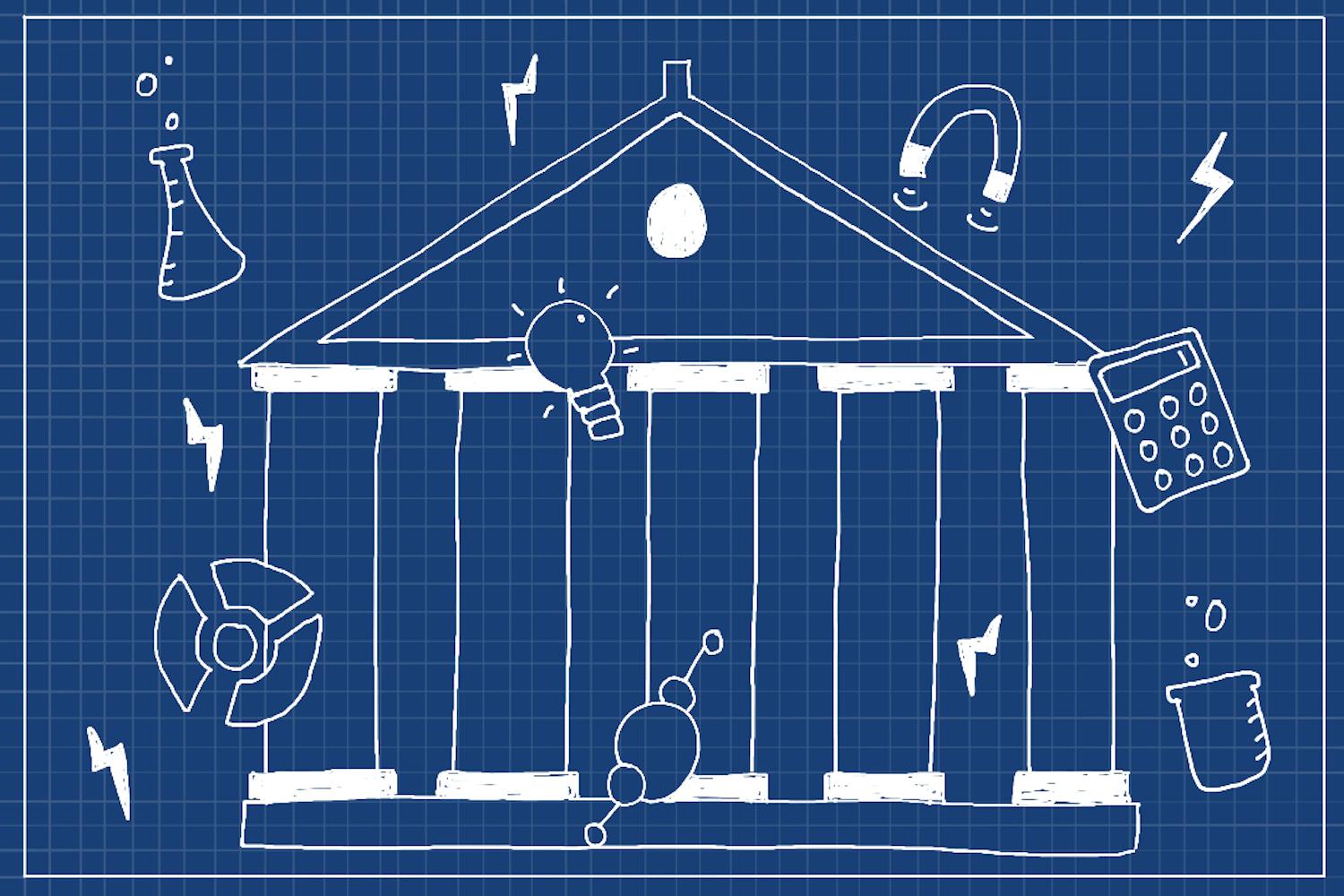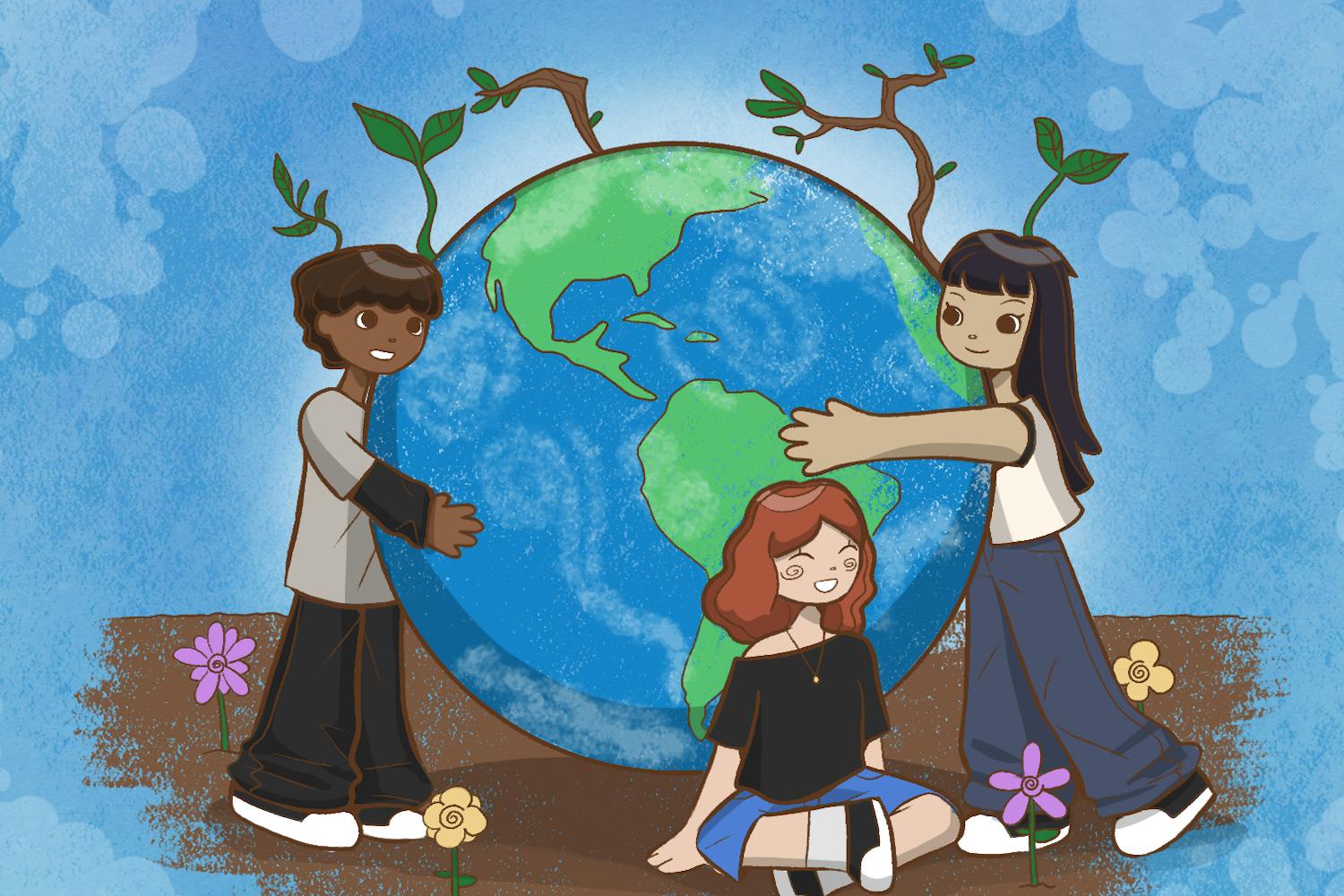Gaming is no longer merely a hobby. From popular children’s educational games like Leapfrog to smartphone apps such as Elevate or Brainwell, companies have been using games as educational platforms for years.
With the development of his video game, professor at ASU’s Julie Ann Wrigley Global Institute of Sustainability Datu Buyung Agusdinata is following the trend.
The game, currently titled "Climate Change Mitigation via Reducing Household Food, Energy, and Water Consumption," is based around role playing video games. The video game places users in a simulation in which they must make decisions based around typical sustainability issues such as energy, water and food shortages.
Development was quick, beginning in September.
In collaboration with multiple schools from around the country as well as in the Netherlands, the game offers an opportunity to see the different ways certain groups handle sustainability issues.
Agusdinata said the goal of the game is to give the user a realistic yet immersive experience while they make their decisions.
“What is new and innovative is the background of the game,” he said. “Within the project, the role-playing game will have several uses. It will enable social scientists to test new social theories — new social norms — or it can be used to teach students.”
The game focuses on game theory, which is primarily based around decision making, risk assessment and payoff from decisions.
Muhammad Hanif, a Ph.D sustainability student working on the game with Agusdinata, said users play the game as a producer or household. Hanif said this achieves an unprecedented level of immersion in terms of sustainability.
“It’s designed to be a modular game,” Hanif said. “It starts off simple, and then you build on it. With any game, you have to make sure it attracts the player who’s playing. It enwalls him within the game. The main goal is to see how people correspond to the few food, water and energy resources in combination with the availability of technology.”
To ensure the experience is realistic, the game will give players a different set of needs to simulate the various needs of societies throughout the world. While one may need a lot of water, others may have to focus on food. Like in real-life sustainability scenarios, no two people will have the same experience.
Hanif said the most difficult part of developing the game was keeping it interesting yet informative.
“Right now, we’re trying to make sure that it stays interesting,” Hanif said. "We want to increase the difficulty of the game in certain aspects. If the complexity is at a certain level, after 5 to 10 minutes, a user will get bored of it. We want to make sure there are strategies and options available to you that will get more and more complex.”
Hanif said that through tests so far, the game could be effective.
“What we see is that the people who are playing the games, with certain challenges you provide them, is that it sticks to them,” Hanif said. “You really don’t have the fear of losing because it’s just a game, but the goals stick within your mind.”
Andrew Bernier, a sustainability researcher at ASU who focuses on making sustainability accessible through design, said immersion is what makes a video game an effective approach to educating users.
“When we’re looking at educating people on sustainability, one of the big things is facilitating behavioral change,” he said. “And to get people to change, a big step is establishing empathy. A game like this that forces users to make decisions forces them to get that empathy.”
Reach the reporter at Emmillma@asu.edu or follow @Millmania1 on Twitter.
Like The State Press on Facebook and follow @statepress on Twitter.




